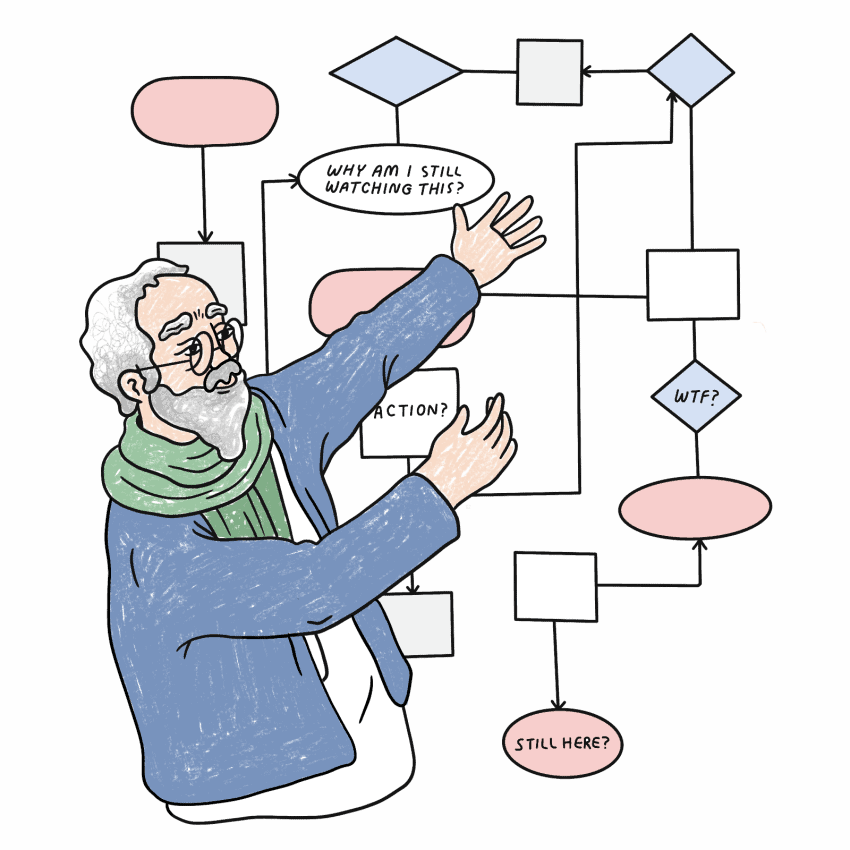I don’t normally do the “I was into X thing before it was cool” cliché, but I was definitely into Black Mirror before it was cool. I first watched the show in 2012, years before Netflix provided an official North American release, and it absolutely blew my mind.
There was nothing else like it at the time, with its Twilight Zone-influenced anthology structure and near-future technological horror stories, and I loved it. It was dark, daring and had a distinct feel from other contemporary shows from both sides of the Atlantic.
Today, Black Mirror is a really easy show to make fun of. It’s easy to imagine the writers of the show throwing darts at a board full of technological and dystopian buzzwords and assembling “we live in a society” plotlines from mismatched elements.
Black Mirror is never bad in the moment — it’s too slick and well crafted to be — but upon retrospection, most of the tossed-off episodes become silly and pretentious. Despite this, the show still has the power to shock, surprise and entertain in its later seasons.
The subversive and compelling “San Junipero” episode immediately comes to mind, as does the horrifying but humorous “USS Calister.” The interactive short Black Mirror: Bandersnatch is another one of those moments where the show transcends what it formerly could be. For better or worse, it’s the most Black Mirror episode of Black Mirror that has ever black mirrored.

Bandersnatch follows the story of a programmer named Stefan attempting to adapt a mysterious choose-your-own-adventure book into an ’80s computer game. The twist this time is that, as the viewer, you have control over all of Stefan’s choices — effectively turning this into a meta-narrative commentary on games, choice and freedom.
In the moment, this is thrilling — it’s a new kind of experience for streaming entertainment, something that’s a bit too thin to be a game and too strange to be classified as a film. The storytelling is propulsive, and there are tons of compounding twists to the point that it almost becomes absurd. However, the degree of choice — perhaps on purpose — is pretty superfluous.
Most of the endings result in nearly identical outcomes, and in classic Black Mirror fashion, the “good” ending is pretty dour. Some of the choices don’t matter at all or only cause minor aesthetic changes to the overall experience, but this didn’t stop the group I was watching Bandersnatch with from going through it twice to find everything.
The best element of Bandersnatch is its use of looping timelines and its inclusion of a single character — the superstar punk programmer Colin Ritman — who doesn’t play by the rules of space and time and is fully aware of the viewer’s, or perhaps the player’s, influence on his world.
Despite how much I enjoyed Bandersnatch — or at least how much I enjoyed it before I applied a literal second’s worth of critical reasoning to it — it’s undeniably a one-trick pony. This isn’t the future of entertainment, and I really hope the people making this stuff realize that.
The thought of an interactive BoJack Horseman experience in a similar style — one that makes you feel as if you are the funny horse who is also a man with crippling depression — has been keeping me up at night. That’s a more frightening dystopian technological vision than anything in any episode of Black Mirror.
For what Black Mirror: Bandersnatch is, it’s a really cool diversion that’s worth your attention. It manages to capture a lot of what made the show so appealing to me in the first place, and I really don’t think it’s the last time this incredible, inventive, stupid show is going to make my jaw drop.
—
Cole Chretien / Culture Editor
Graphic: Jaymie Stachyruk / Graphics Editor
Leave a Reply